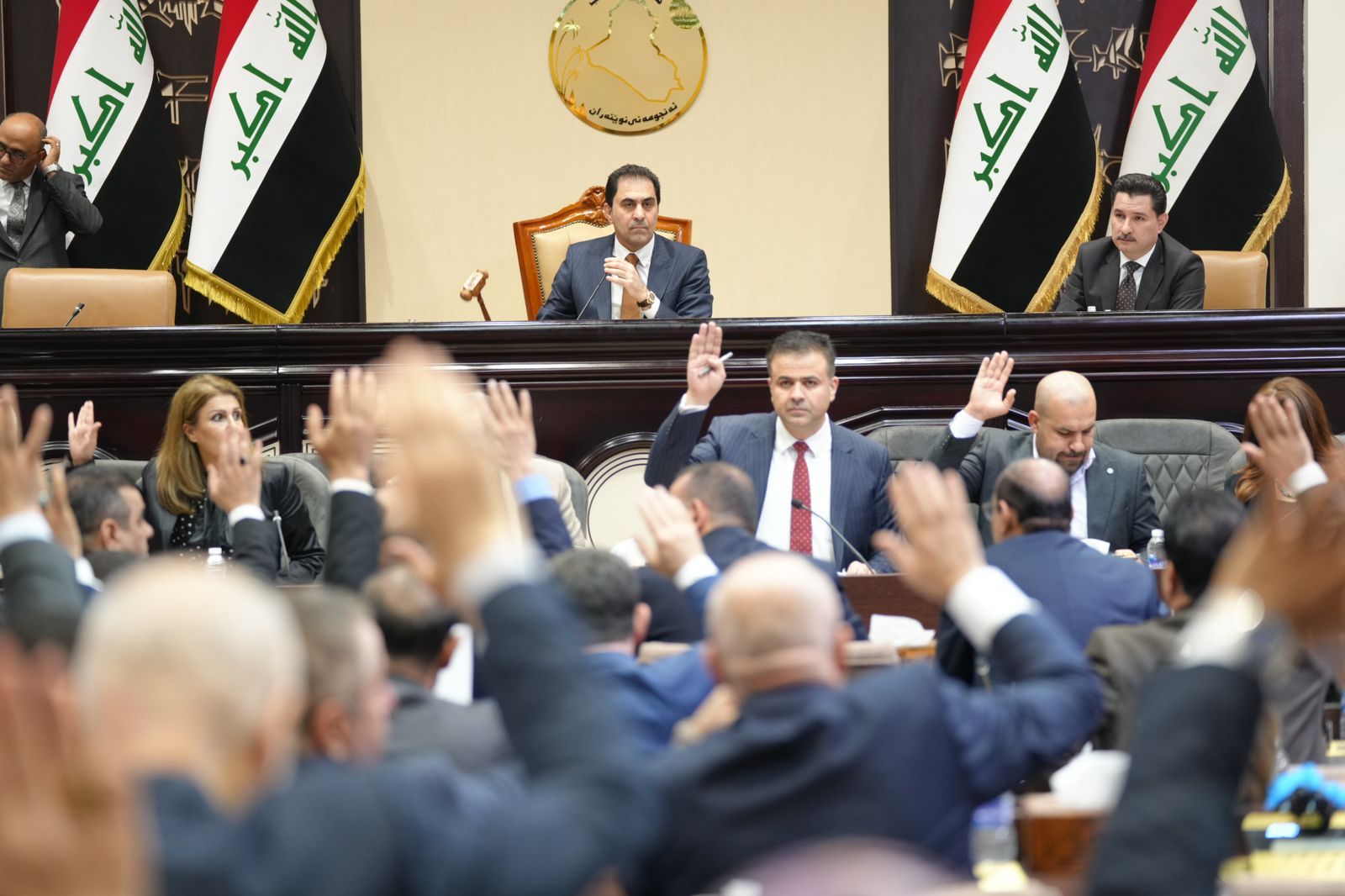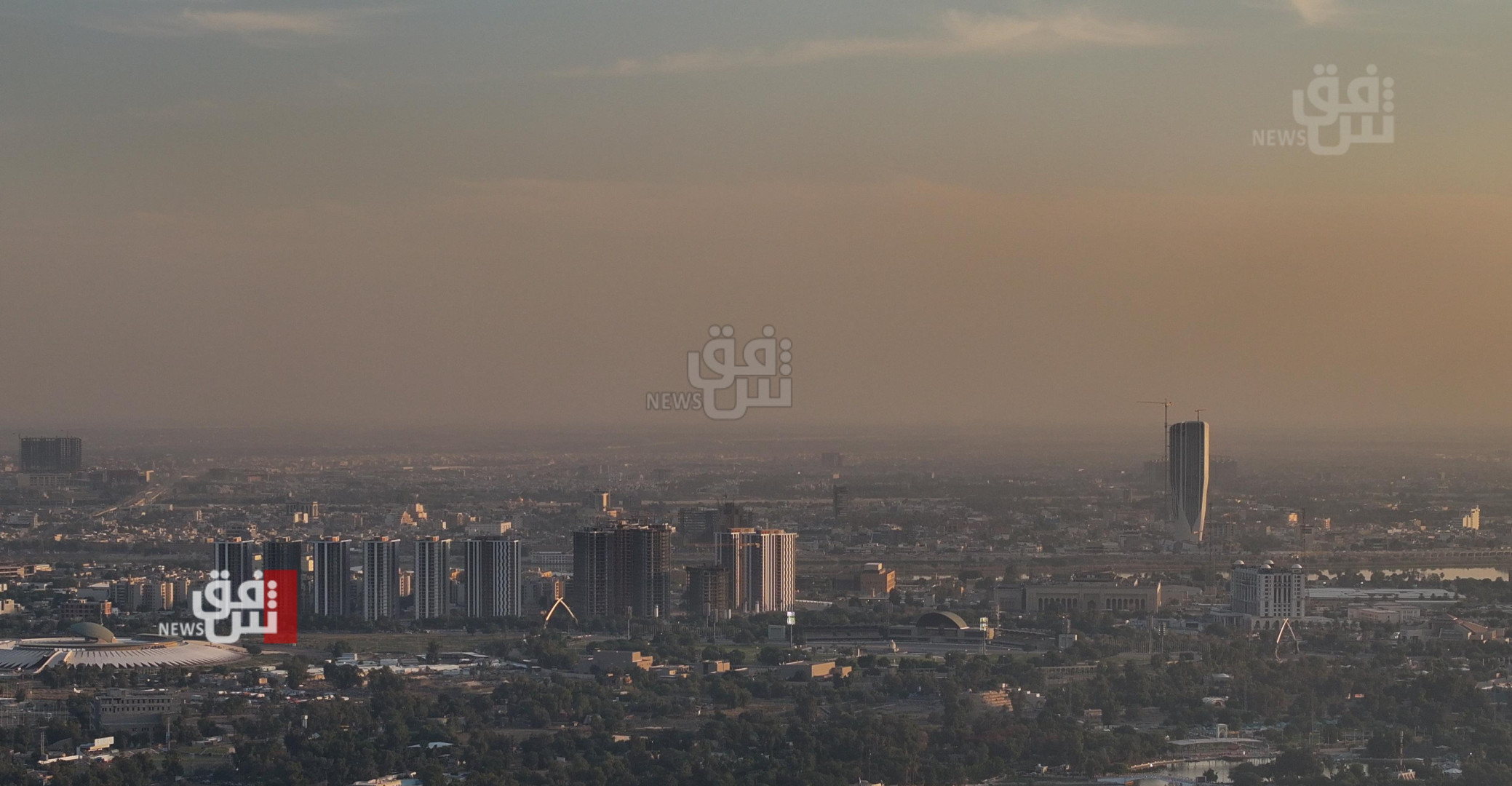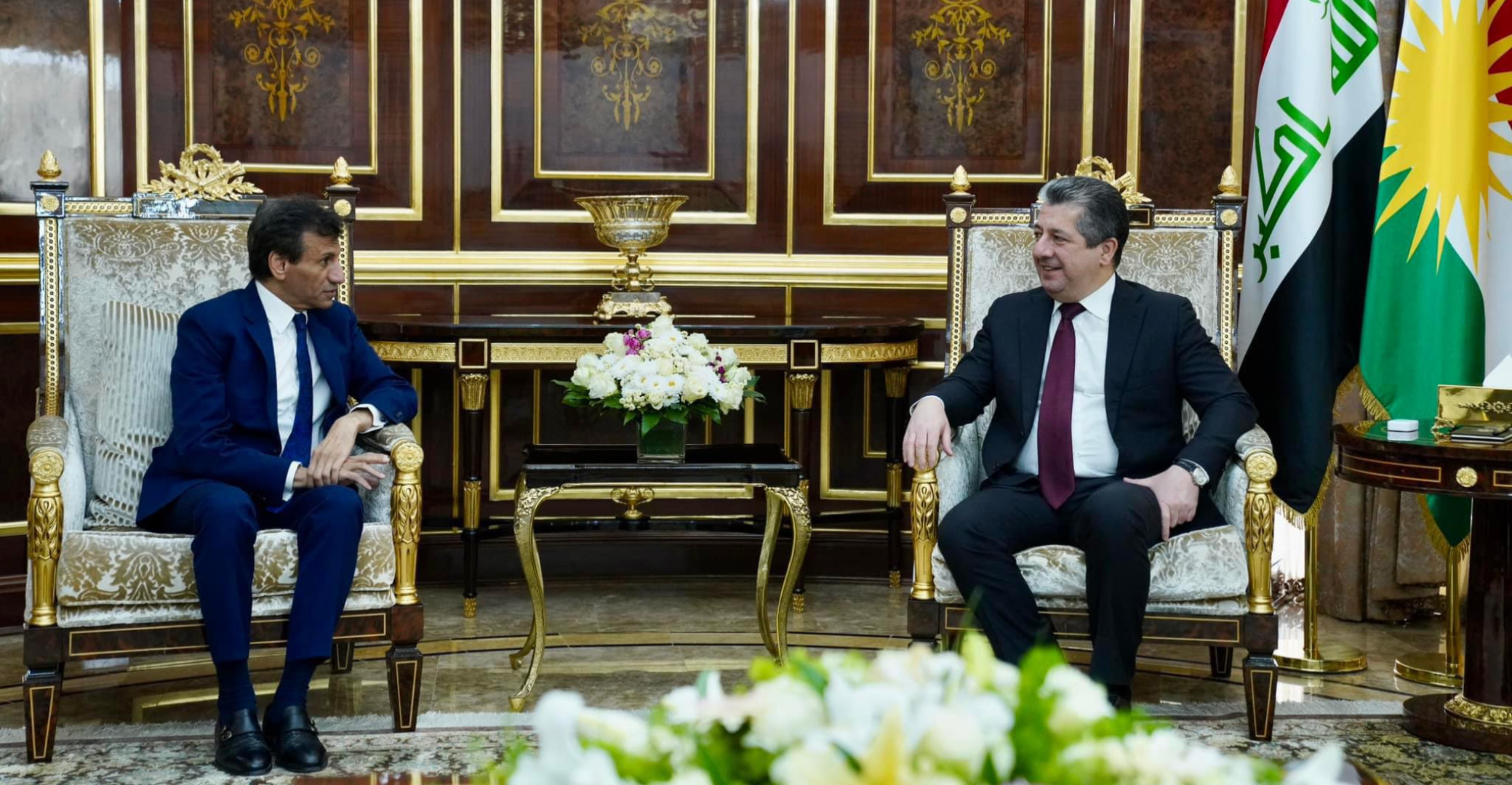How can the Iraqi Parliament resolve the dilemma of choosing a speaker?

Shafaq News / The intricate process of electing a president for the Iraqi Parliament has recently posed a significant challenge, drawing attention to the complexities embedded within Article 55 of the Iraqi Constitution and Article 12/3 of the Parliament's Internal Regulations.
These provisions mandate that a candidate must secure a majority of votes, specifically "50+1", from Members of Parliament to assume the esteemed position of Council President. However, the absence of clear directives in the event of a failed election has sparked uncertainty among parliamentarians, potentially leading to repeated voting sessions and instances of discord and physical confrontation within the parliamentary chamber.
In light of recent developments, the Iraqi Parliament convened a session to elect its new president, yet this endeavor was met with obstacles, culminating in the adjournment of proceedings.
The failure of a crucial third round of voting emphasizes the challenges inherent in the electoral process, prompting calls for a reconsideration of the parliamentary procedures before further ballots are cast.
Prepared play
In this context, politician Ibrahim Al-Dulaimi remarked on the recent election session for the Iraqi Parliament's presidency, describing it as a staged drama orchestrated by certain MPs. He highlighted the procedural efficiency maintained by Acting Speaker Mohsen al-Mandalawi and Deputy Speaker Shakhwan Abdullah, who managed the session's rhythm. The outcome concluded with Salem Al-Issawi securing 158 votes against Mahmoud Al-Mashhadani's 137 votes.
Al-Dulaimi indicated that "a deputy from the Taqadum Party aimed to amend Article 12 to nominate himself, orchestrating the events." He suggested that "Al-Mashhadani should gracefully withdraw to preserve his dignity, leaving Al-Issawi as the sole candidate representing Sunni forces, thereby solidifying his position as the next president."
Ahmed Abdullah Al-Jubouri, aka Abu Mazen, the Secretary-General of the National Masses Party, criticized Sunni members of Parliament in a sharp statement on Sunday, holding them responsible for the failure to elect a new Parliament president and accusing them of prioritizing personal ambitions over the public good.
Additionally, Khamis Al-Khanjar, leader of the Siyada Party, commented on X, praising parliamentarians for initially showcasing an exemplary model of democratic practice by resorting to the ballot box to confer confidence upon one of the candidates. However, he lamented the resort to brawling during the session and the assault on a bloc leader, which he viewed as detrimental to legislative authority and order, presenting a disorderly example unbecoming of Iraq and its people.
Monopolization of power
Independent deputy Yassin Al-Ethawi attributed this competition to each party's perceived entitlement to the position, stemming from the consensus democracy prevalent in Iraqi political processes since its establishment post-2003. He noted the "absence of clear rules, systems, or instructions beyond precedent in occupying such positions, leading to a competitive power struggle where each party or political force claims rightful authority."
Al-Ethawi expressed hope for a resolution to the vacant Parliament Speaker position within this week. He urged Sunni factions to conduct a "smooth session without causing negative impacts on legislative oversight or harmony among MPs."
The Coordinating Framework of Shiite political forces warned on Sunday against turning the Iraqi Parliament into a "battleground of disputes and conflicts." They called for Mahmoud Al-Mashhadani to withdraw in favor of candidate Salem Al-Issawi for the Parliament's presidency.
Hasan Fadaam, a leader within the Framework, stressed that Al-Mashhadani should withdraw following Saturday's election session. He argued that "if Al-Mashhadani were to become Speaker through coercion and pressure exerted by their blocs, Parliament would only become an arena for disputes and conflicts for the remainder of its term, unable to fulfill any legislative or oversight roles effectively."
Breach of law
Abbas Al-Jubouri, President of Al-Rafid Center for Studies, viewed the postponement of the Parliament Speaker election session as a legal violation. He criticized the agreements reached on this matter as being outside logical and constitutional norms, attributing the dispute to personal conflicts among political blocs rather than national interests.
Speaking to Shafaq News Agency, Al-Jubouri emphasized that "despite many political blocs declaring support with 200 signatures for Mahmoud Al-Mashhadani, he was not elected inside the parliamentary hall, indicating institutional dysfunction within the legislative body." He stressed that "resolving this conflict requires prioritizing national interests over personal agendas, selecting a consensus Speaker who adheres to constitutional and legal mechanisms."
The Alliance of National State Forces, led by Ammar al-Hakim, confirmed on Sunday no imminent session is planned to elect a Parliament Speaker. Deputy Speaker Mohsen al-Mandalawi will continue in an acting capacity due to Sunni-Sunni disputes.
Member of the Alliance Ali Ni’ma told Shafaq News Agency, "There is no immediate session this week to elect a Parliament Speaker due to intense Sunni-Sunni conflict.
"After yesterday's session, no new session can be held without fresh political consensus and agreement between all parties."
He indicated, "Al-Mandalawi's continued tenure as Parliament Speaker is due to Sunni-Sunni strife. The ongoing conflict is the reason for his tenure, and there is no intention from any political party, including himself, for his continued presence. However, the Sunni conflict dictates his retention until the end of the parliamentary term."
What is the solution?
Legal expert Ali Al-Tamimi clarified that Article 55 of the Constitution and Article 12/3 of Parliament's Internal Regulations (Law No. 1 of 2022) do not specify what happens if Parliament fails to elect a new Speaker due to vacancy, resignation, or other reasons. This ambiguity implies that without electing a new Speaker, the Parliament will continue holding new sessions until one candidate secures a majority plus one (166 votes).
Speaking to Shafaq News Agency, Al-Tamimi further explained, "The nomination process will not be reopened as per the Federal Court's interpretative decision No. 322 of Article 55 of the Constitution, which states that the nomination process cannot be reopened. Therefore, the resolution of whether one of the candidates wins or not depends on consensus."
On Saturday evening, the Iraqi Parliament convened a session to elect a new Speaker attended by around 300 deputies. The first round of voting failed, leading to a second round where MP Salem Al-Issawi garnered 158 votes. Meanwhile, MP Mahmoud Al-Mashhadani received 137 votes.
Parliament proceeded to a third round, but it was disrupted by a physical altercation among deputies.
Notably, on November 14, 2023, the Federal Supreme Court, the highest judicial authority in Iraq, decided to end the membership of Parliament Speaker Mohammed al-Halbousi. Then, the Iraqi Parliament officially terminated his membership on November 21, 2023.
On January 13, the Iraqi Parliament held an extraordinary session to choose the new Speaker. However, due to verbal altercations inside the council hall, the session was adjourned without completing the election process.



